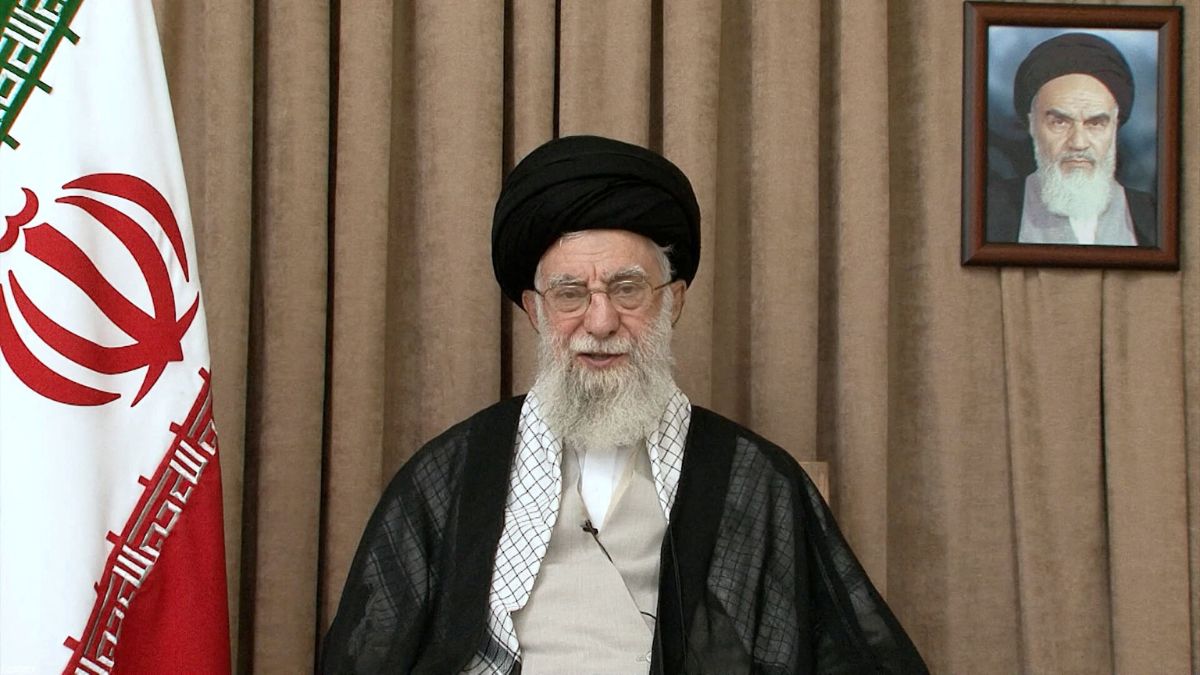Iran’s Supreme Leader Ayatollah Ali Khamenei on Sunday vowed that Tehran would resist US attempts to make it “obedient,” warning that calls for direct engagement with Washington ignore the deeper realities of the standoff.
“Those who urge negotiations with the US only look at appearances,” Khamenei said in remarks published by state media. “In my view, the issue is unsolvable.”
His comments come as Iran’s Foreign Minister Abbas Araqchi agreed with his French, British and German counterparts to resume nuclear talks next week, state media reported. The European powers have threatened to trigger a “snapback” of United Nations sanctions if Tehran refuses to return to negotiations over its uranium enrichment programme.
Concerns in Europe have heightened since Iran, already enriching uranium close to weapons-grade levels, halted all cooperation with the International Atomic Energy Agency after the 12-day Iran–Israel conflict in June, which saw Israeli strikes hit Iranian nuclear sites.
That move has left the international community without oversight of Iran’s stockpile, which includes uranium enriched to 60% purity, just a short step from the 90% threshold required for nuclear weapons.
German Foreign Minister Johann Wadephul confirmed talks next week and warned Iran that sanctions would snap back into effect unless it reached a verifiable and durable deal to defuse concerns about its nuclear ambitions. He reiterated that time was very short and Iran needed to engage substantively.
Iranian state media said Araqchi and the British, French and German foreign ministers agreed during a phone call for deputy foreign ministers to continue the talks on Tuesday.
Impact Shorts
More ShortsDuring the call, Araqchi “emphasised the legal and moral incompetence of these countries to resort to the (snapback) mechanism, and warned of the consequences of such an action”, Iranian media reported.
The European trio, along with the U.S., contend that Iran is using the nuclear energy programme to potentially develop weapons capability in violation of the Non-Proliferation Treaty. Iran says it seeks only civilian nuclear power.
The International Atomic Energy Agency, the U.N. nuclear watchdog, has stated that Iran is nowhere near developing a nuclear bomb, and U.S. national intelligence director Tulsi Gabbard testified in March that intelligence officials had not found evidence of Iran moving toward a nuclear weapon.
The Islamic Republic suspended nuclear negotiations with the United States, which were aimed at curbing its accelerating enrichment programme, after the U.S. and Israel bombed its nuclear sites during a 12-day war in June.
Since then, IAEA inspectors have been unable to access Iran’s nuclear installations, despite IAEA chief Rafael Grossi stating that inspections remain essential.
Iran and the three European powers last convened in Geneva on June 20, while the war was still raging, and there were few signs of progress.
Separately, Iran’s envoy to the IAEA said an Iranian delegation and IAEA officials had agreed in talks in Vienna on Friday to discuss ways to interact within the framework of a law passed by Iran’s parliament that curbs Tehran’s cooperation with the nuclear watchdog, the official news agency IRNA reported.


)

)
)
)
)
)
)
)
)



